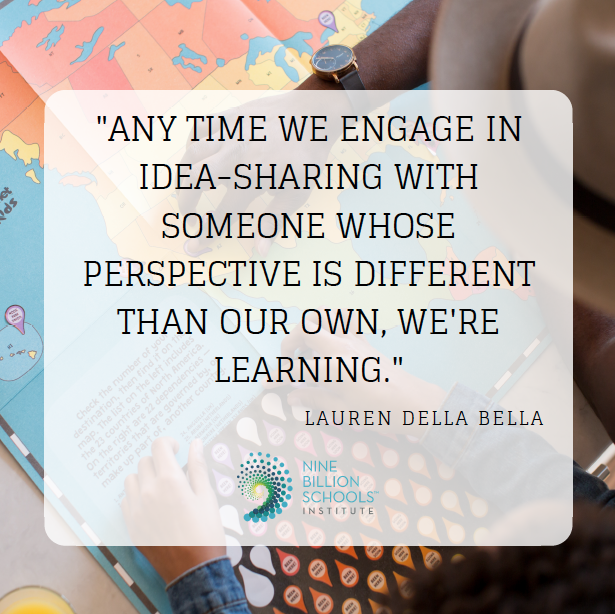Vitaegogy in Action
Understanding what vitaegogy means and what it represents is an important first step in embracing life-long, life-wide and life-deep (L3) learning. But that’s just the first step. By its very definition, vitaegogy is a practice and way of pursuing a flourishing life as much as it is a philosophy or approach to learning.
How does vitaegogy apply to daily life?
Now that we understand the term, the next step is applying the concept to daily life. It comes down to intentionality; that is, choosing to purposefully pursue knowledge to serve a variety of interests and needs, thoughtfully applying that knowledge when it’s needed most, and proactively sharing it with—or, perhaps more accurately, serving as a resource to—others who seek access to our knowledge.
Purposefully pursue knowledge:
Adopting vitaegogy starts with changing your definition of what qualifies as learning. I love how Jeff Cobb put it in 50 Ways We Learn: “We still too often really mean ‘education’ when we say learning… If we’re paying attention, we realize that we’re constantly engaged in activities in our everyday lives that are ripe with learning potential.”
Whether it’s trying a new recipe, taking a new route home from work, or Googling how to train a puppy to stop gnawing on your favorite pair of Birkenstocks (true story…), you’re learning dozens of new things every day. Categorizing your every attempt to acquire knowledge as learning is the first step.
Thoughtfully apply knowledge:
Under the vitaegogy umbrella, how and what you do with the knowledge you gain is a natural outgrowth to acquiring it in the first place. Do you put it to immediate use? File it away for a rainy day? Share it with a colleague at the water cooler? Whatever it is, your answer is right.
Proactively share knowledge:
Benjamin Franklin said it best: “Tell me and I forget, teach me and I may remember, involve me and I learn.” The act of contributing to someone else’s learning is one of the most important parts of vitaegogy. It’s also the point at which we return to step one, purposefully pursuing knowledge. Any time we engage in idea-sharing with someone whose perspective is different than our own, we’re learning and teaching at the same time.
The good news is, there’s already an incredibly effective mechanism in place for proactively sharing knowledge once you’ve attained it: mentors and mentees.
The importance of having a mentor cannot be understated; they teach us valuable lessons, help us bounce back from disappointments, and stimulate our personal and professional growth. And when it comes to learning, mentor/mentee relationships go both ways: I learn as much from my young professional colleagues as I do from the seasoned industry veterans who have invested their time in helping me grow.
This doesn’t just apply to professional relationships, though. That’s what so beautiful about the concept of vitaegogy: any interaction we undertake with the intention of sharing knowledge counts. It’s everywhere and everything, and it’s always on time. When your tennis partner shows you a new swing: check. When you share a book recommendation with a friend: check. Discuss the latest headlines on Facebook, make a new recipe for your family, ask a neighbor for the secret behind their prize-winning petunias: check, check, check.
Dick and I are willing to admit that vitaegogy is a big concept. Learning to learn one’s whole life long? Heady stuff. But take a step back and think about it, and you’ll soon realize: When you reframe your perspective of what it means to learn—to pursue knowledge, apply it and share it—vitaegogy is all around.






